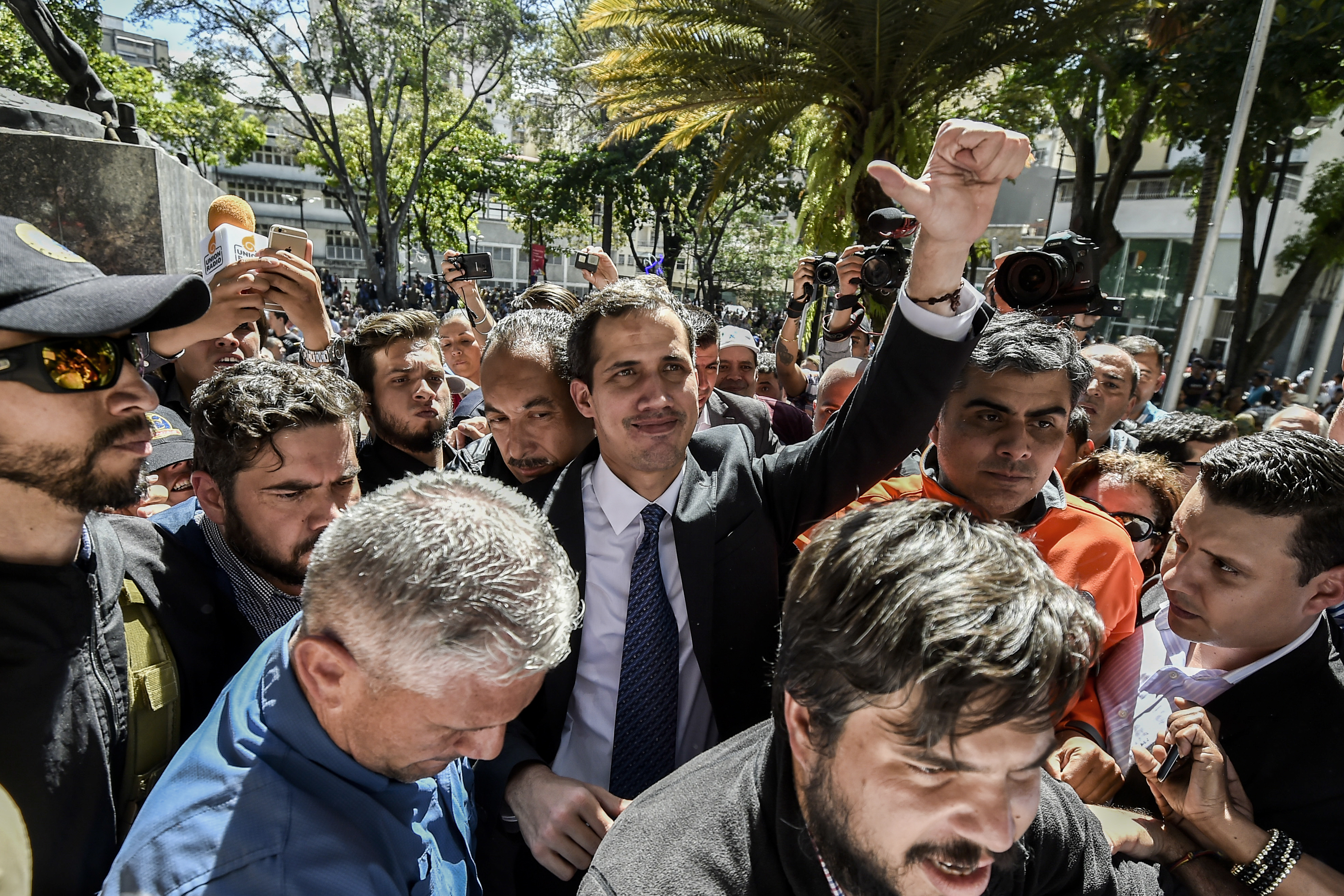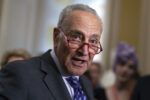Four scenarios for Venezuela’s growing political crisis
Venezuelan opposition leader Juan Guaido (C), head of the National Assembly and self-declared ‘acting president,’ is seen in a crowd of supporters after a rally in Caracas on January 25, 2019 (Luis ROBAYO)
Caracas (AFP) – The political crisis in Venezuela has intensified since Juan Guaido proclaimed himself acting president, but what happens next depends on the United States and the Venezuelan military.
In a country that has economically collapsed, with inflation forecast to hit a breathtaking 10 million percent this year, National Assembly chief Guaido said Wednesday he would “formally assume national executive powers” to end the “usurpation” of power by Nicolas Maduro.
Maduro has accused Washington of being behind an attempted coup and has cut diplomatic ties.
Here are four ways the situation could now unfold:
– A transition –
This is the solution Guaido favors: the formation of a “government of transition” and then the organization of elections.
Guaido urged the military, Maduro’s most powerful backers, to sever ties with the “dictator” in exchange for an amnesty.
But the military, for now, remains loyal to the head of state who has been in power since 2013.
If the army maintains its loyalty, the prospects for change will depend on the opposition’s ability to unite and stay united, to moderate its expectations and to accept a “longer-term transition,” said Peter Hakim, president emeritus of the Inter-American Dialogue, in Washington.
Things would move far more quickly if the military switched sides, but that would probably require amnesties for them and for some top Venezuelan officials, many of them accused by Washington of corruption, violations of human rights or drug trafficking.
Another factor that could accelerate the transition: if Donald Trump imposed sanctions on Venezuelan oil (the US buys one-third of its total exports, some 510,000 barrels a day last year), this would deliver a fatal blow to the economy and fracture Maduro’s base of supporters, according to the Capital Economics consultancy.
– Maduro hangs on –
Even if the opposition is hoping for the military to turn against Maduro, “that is not likely to happen,” according to the Inter-American Dialogue’s Michael Shifter, who noted that army leaders only recently reaffirmed their support for the current president.
Hakim believes that if the “opposition fails to unify and the military maintains support for the government, this will probably mean continuing Chavista rule, likely with Maduro remaining in power.”
The country’s socialist leader was re-elected last May to a term ending in 2025, in balloting boycotted by the opposition and contested by the European Union and several Latin American countries.
Maduro might be able to rely on financial support from allies like China, Russia and Iran, countries “more united by suspicion of US interests than any sympathy for the Venezuelan leader himself,” said Paul Hare of Boston University.
Venezuela delivers some 300,000 barrels of oil a day to China in partial repayment for a debt of $20 billion. It also owes $10.5 billion to Russia, according to several consultancy firms.
Beijing and Moscow could “try to salvage the regime, perhaps by requiring some serious economic reforms and restructuring of the oil business,” Hare said. But the blade is double-edged: they might also demand Maduro’s departure — and his replacement by a “less politically toxic leader.”
– The army in charge –
If the army withdraws its support from Maduro and the opposition remains divided, the military could take control, “at least for a time,” Hakim predicted.
“The worst scenario” might then result, Shifter said, bringing “increased repression and possibly even widespread civil strife.”
“There are perils that come with having parallel governments,” he said.
Trump, moreover, has said that “all options are on the table,” a phrase understood to include a possible military intervention.
– A negotiation –
Maduro has said he is prepared to meet with his rival, but Guaido has rejected any “fake dialogue.”
Part of the international community favors that solution: the European Union sees Maduro’s presidency as illegitimate but has yet to recognize Guaido as president and has called for the creation of a “contact group” between the two camps.
Mexico and Uruguay also favor a negotiated solution.
For Shifter, the best outcome would be “a prolonged negotiation between a more united opposition and a government on the defensive.” It would be the fifth attempt at a negotiated solution between the government and the opposition since 2014.
With luck, he said, it could lead to the organization of new elections.
Disclaimer: This story is published from a syndicated feed. Siliconeer does not assume any liability for the above story. Validity of the above story is for 7 Days from original date of publishing. Content copyright AFP.


